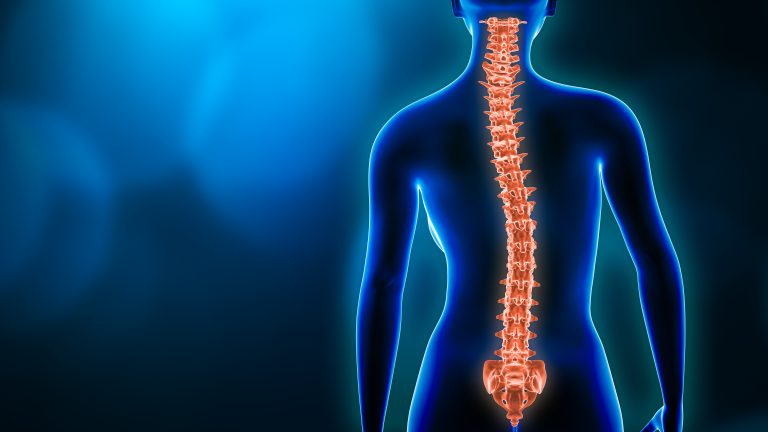What is Scoliosis?
Scoliosis describes the abnormal curvature of the spine. The types of scoliosis symptoms that someone experiences will depend entirely on the severity of the condition. While some forms of scoliosis are extremely mild and present few or no symptoms, cases of severe scoliosis can cause debilitating pain that severely reduces quality of life.
This condition can lead to structural symptoms like unevenness in the shoulders or waist, one hip that is higher than the other, or one shoulder blade that is more prominent than the other. Slight abnormalities in gait may also be present for someone with scoliosis. In severe cases, the spine may be so abnormally curved that it presses on the rib cage and reduces the space in the chest, which can lead to difficulty breathing. Read the following article to learn more about common signs of scoliosis.
Symptoms of Scoliosis
Scoliosis may result in discomfort caused by associated spinal conditions that have developed. For instance, scoliosis tends to place an increased amount of pressure on the discs and facet joints of the spine, which can cause them to degenerate at an accelerated pace. Spinal stenosis, spinal arthritis, degenerative disc disease, and pinched nerves are common conditions for someone with scoliosis to develop over the course of his or her life.
Symptoms of these conditions can include:
- Shooting pain in the neck, back, or extremities
- A tingling sensation in the arms, hands, legs, or feet
- Numbness in the limbs
- Muscle weakness
Treating Scoliosis Symptoms
Scoliosis symptoms can often be treated with a range of conservative treatments, like physical therapy, anti-inflammatories, massage therapy, chiropractic care, and epidural steroid injections. In severe cases, however, surgery may become a consideration. At BEST Health System, we offer a minimally invasive alternative to traditional surgery. This allows our patients to undergo less scarring, less pain, all while being on an outpatient basis. Our board-certified surgeons’ overall goal is to help our patients find the most effective, least invasive treatment option.
Contact BEST today to learn more.
